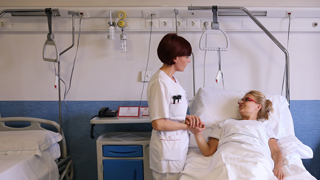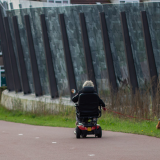
Openbare diensten
Openbare diensten, zoals gezondheidszorg, onderwijs, maatschappelijke zorg en vervoer, zijn essentieel om een hoge mate van sociale bescherming, sociale samenhang en sociale inclusie te bereiken. In een veranderend maatschappelijk en demografisch landschap is het echter de kwaliteit van en de toegang tot openbare diensten die bepalend zijn voor hun succes.
De uitdaging voor beleidsmakers is de opzet en de verstrekking van gezondheidszorg en sociale voorzieningen te laten voldoen aan de uiteenlopende behoeften van burgers. Die uitdaging is in de afgelopen jaren moeilijker geworden door ernstige financiële beperkingen en door een toegenomen vraag, deels door de demografische vergrijzing en deels door de toestroom van vluchtelingen naar Europa. Naast de betaalbaarheid en de kwaliteit, duiken er nieuwe moeilijkheden op. Onder meer het risico dat nieuwe digitale kanalen voor dienstverlening reeds kansarme samenlevingen nog verder isoleren, alsook eventuele moeilijkheden om normen voor de toegang tot en de kwaliteit van diensten hoog te houden.
Het sociaal investeringspakket van de Commissie, dat in 2013 werd gelanceerd, spoort lidstaten aan om meer nadruk te leggen op openbare diensten van hoge kwaliteit. Daarnaast wordt in de strategie van de Commissie voor een digitale eengemaakte markt, goedgekeurd in 2015, het accent gelegd op het moderniseren van openbare diensten als een manier om het concurrentievermogen te vergroten. Het kiezen voor nieuwe technologieën, online openbare diensten en grensoverschrijdende interoperabiliteit is van essentieel belang om de kostenefficiëntie en kwaliteit van diensten te vergroten. In april 2017 lanceerde de Commissie het pakket over de Europese pijler van sociale rechten, waarvan enkele hoofdbeginselen zijn: toegang tot onderwijs van goede kwaliteit, opvang en onderwijs voor jonge kinderen, gezondheidszorg, sociale huisvesting en andere essentiële diensten.
- Europese Commissie: sociaal investeringspakket
- Europese Commissie: digitale eengemaakte markt
- Europese Commissie: Europese pijler van sociale rechten



























